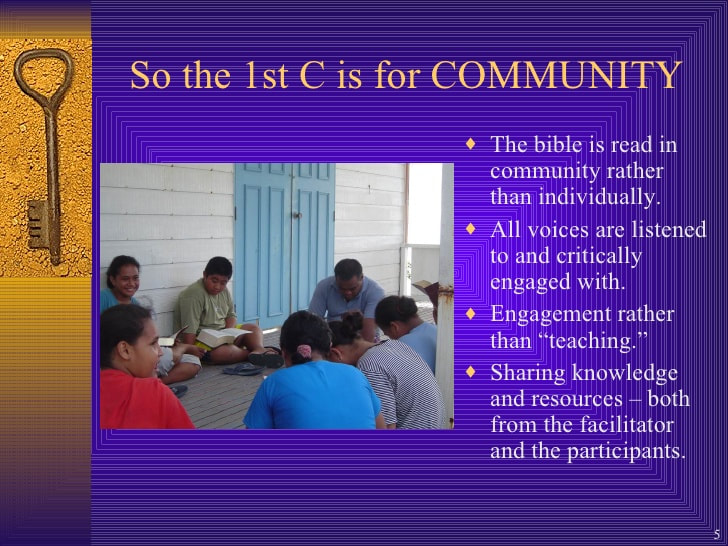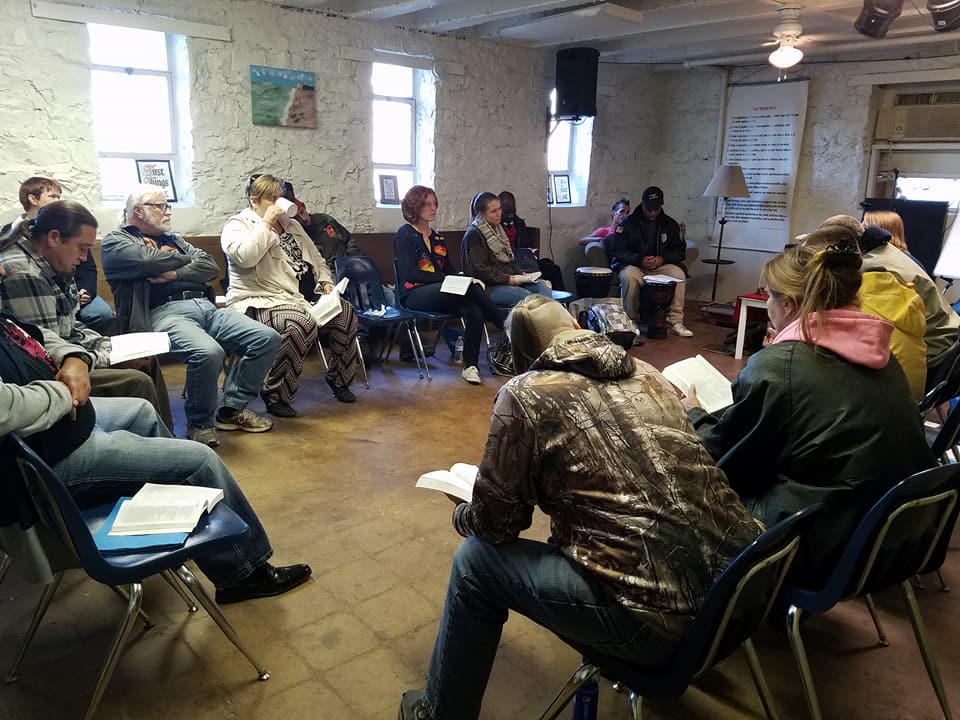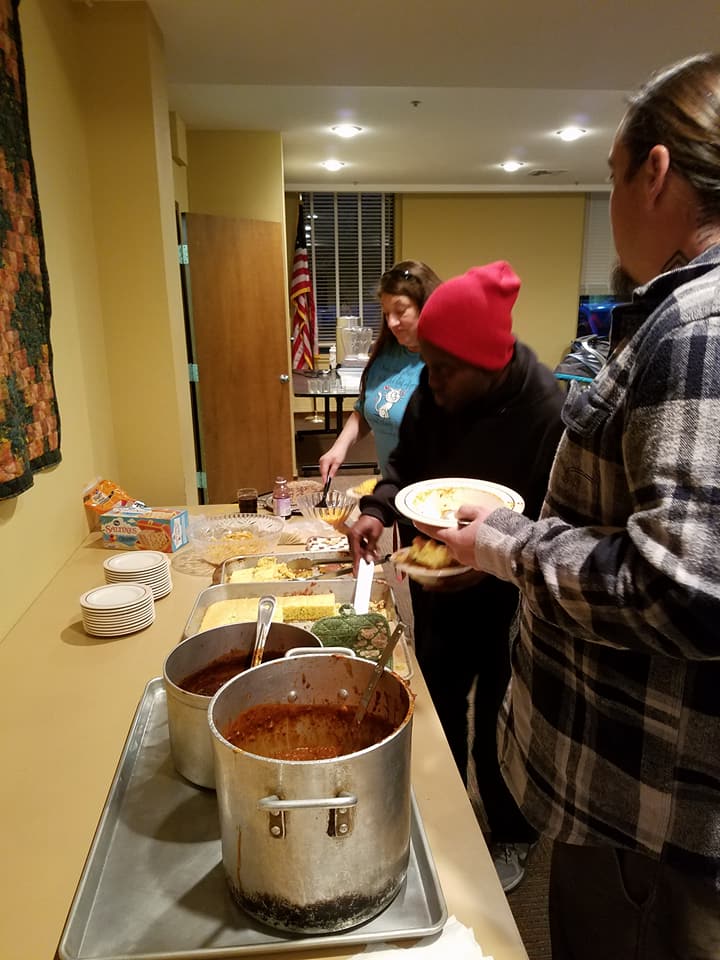- Home
- Process Worldview
- Community
- Art and Music
- Whitehead and Process Thinking
- Podcasts
- Spirituality
- Ecological Civilization
- Education
- Contact
- Social Justice
- Science
- Animals
- Sacred Poems
- Whitehead Videos
- Index of All Titles
- Practicing Process Thought
- Process Spirituality: A Spiritual Alphabet
- Recent Posts
Liberating the Bible
through contextual Bible studies
What might an open and relational (process) Bible study look like?
Perhaps it would look like a contextual Bible study as practiced in the global south, portions of Europe, and certain settings in North America. It would be a context in which people listen to one another; laugh with one another; avoiding fundamentalisms and adding their own revelations; with the Bible as a friend, guide, and partner in dialogue. Its aim would be the flourishing of life at individual and community levels. Its outcomes would be open-ended, mirroring and participating in the openness of God.
The rest of this page consists of springboards for reflection on how open and relational (process) theologies might be practiced through contextual Bible studies, and, along the way, provide theoretical encouragement for such studies. The page is best considered in conjunction with two other essays.
Seven Questions from a Young Seminarian
Dear New Testament Professor,
I am enjoying your course in the New Testament and learning so much! Thank you.
I understand that you are also influenced by open and relational (process) theology. I am, too.
Like you, I think God hears each person in his or her concrete situation, feeling her feelings and affected by the joys and sufferings, responding with possibilities for creative transformation relative to the situation at hand. And, like you, I think that a person's experience arises out of, and is embedded within, a local context.
I am leading a Bible study at my local church. There are twelve in our group, mostly women; and some are on the margins of society, having suffered from domestic and sexual abuse. Their voices deserve to be heard, and I want to help create a context, in the Bible study itself, where they can share.
I sense that this emphasis on people 'sharing and being heard' is part of what a colleague of yours speaks as Contextual Bible Study or, alternatively, Popular Bible Study.
She thinks that Bible studies grow stale when they focus so exclusively on the Bible that the contexts of people's lives are neglected. She says that people participating in Bible studies, adding their own points of view, is what is most important.
She also says that people can question the Biblical texts. I know that you do as well. I agree. The Bible is a source of tremendous wisdom, but it is not the same thing as God. It is -- or can be -- a friend and companion, not a tyrant who shuts off all debate. I think Contextual Bible Studies say the same thing.
I'm thinking about writing a thesis on Contextual Bible Study and Open and Relational Theology. I'm excited about finding connections and also discerning differences. But my aim is always pastoral. I want to help bring the Bible into the lives of real people in real circumstances.
Which takes me to my questions:
- What does an open and relational Bible study look like? In particular what are the group dynamics?
- How important is listening in such a study? Is it part of the practice?
- Can such a study include questioning the authority of the texts?
- Can such a study include the joy of creating new stories, especially among people who are not often enough heard in the dominant society?
- Do the new stories have to be completely based on the biblicl text, or can the stories go off in new directions based on people's experience?
- If the latter, might the activity of creating new stories be part of what it means to be faithful to God and to the Bible?
- You have explained to me that creativity of this sort is found in the midrash traditions of Judaism. Might we Christians, too, engage in midrash?
Looking forward to your guidance.
Beverly
The Problem is not the Bible
"I think it is crucial to note that in the global North — where secularized, and secularizing, society has laid the Bible aside — this is not because of the Bible itself, but because of the way in which Scripture (and especially the reading of Scripture) has been used or maybe misused. For the majority, churches are cold and meaningless spaces. Many attend church out of tradition, or belong to the community but go there only for the purposes of baptism, confirmation and marriage." (Paulo Ueti)
Images of a Contextual Bible Study
at Mercy Community Church in Arkansas, USA
"a multi-denominational worshiping community in downtown Little Rock, Arkansas,
welcoming all people, especially those living on the streets.: Images from Facebook page.
Can the Bible Live Again?
yes, but it needs to be liberated
The Bible is a living book, a friend, a guide, and a source of almost endless inspiration.
And yet it can be enslaved by human beings who use it as a bludgeon, a tool for oppression, or a conversation-stopper. As Dr. Robert Williamson puts it: "We all have our own ways of drawing limits around God’s mercy."
The Bible can be imprisoned by:
When freed from enslavement, the Bible can itself be a source of liberation and power.
Contextual Bible Studies illustrate how this can work. I first learned about this kind of Bible study from Mercy Community Church in Little Rock, Arkansas. They are a multi-denominational worshiping community in downtown Little Rock welcoming all people, especially those living on the streets. Above you see some photos from their Facebook page. You can learn more about Mercy Church from the blog of Dr. Robert Williamson, who helps lead it. See Three Years of Mercy.
And yet it can be enslaved by human beings who use it as a bludgeon, a tool for oppression, or a conversation-stopper. As Dr. Robert Williamson puts it: "We all have our own ways of drawing limits around God’s mercy."
The Bible can be imprisoned by:
- being confined to worship services where people "hear the Word" but do not get to discuss
- being confined to scholarly discussions of historical background and textual meaning, at the expense of considering its relevant to personal experience and social transformation
- the assumption that the Bible is an inerrant authority that cannot be questioned or challenged
- the assumption that only "well read" people (usually men in power) can rightly interpret the Bible.
- the assumption that the Bible, properly read, yields a single, all inclusive theology, when in fact it contained many theologies, some more constructive than others.
- the assumption that it's inspiration is solely and exclusively a matter of verbal recitation, lacking any input form human agency.
When freed from enslavement, the Bible can itself be a source of liberation and power.
Contextual Bible Studies illustrate how this can work. I first learned about this kind of Bible study from Mercy Community Church in Little Rock, Arkansas. They are a multi-denominational worshiping community in downtown Little Rock welcoming all people, especially those living on the streets. Above you see some photos from their Facebook page. You can learn more about Mercy Church from the blog of Dr. Robert Williamson, who helps lead it. See Three Years of Mercy.
As the images from Mercy Community Church suggest, Contextual Bible Studies emphasize group settings in which people are listened to and heard, knowing that their voice counts. Amid discussions they can freely develop ideas that are inspired, but not contrained, by the texts they study. See Contextual Bible Study and Contextual Bible Studies: An Overview.
Contextual Bible Studies illustrate what an open and relational Bible study might looks like. Heretofore, Open and Relational Theologians have said much about the Bible, but not as much about popular Bible study. Contextual Bible Studies fill that need. Open and relational (process) theologies simultaneously offer six ideas that lend support to the work of such studies. They emphasize nine ideas:
-- Jay McDaniel
Contextual Bible Studies illustrate what an open and relational Bible study might looks like. Heretofore, Open and Relational Theologians have said much about the Bible, but not as much about popular Bible study. Contextual Bible Studies fill that need. Open and relational (process) theologies simultaneously offer six ideas that lend support to the work of such studies. They emphasize nine ideas:
- Contextuality and Inter-subjectivity: When people get together they can feel the feelings of one another and share in their respective lives.
- Food, Music, and Storytelling: Part of what makes for inter-subjective health is a spirit of imagination and play. These, and not simply discussion, are the nutrients of a successful Bible study.
- Wisdom of the Heart: When it comes to understanding the Bible, the understanding at issue is not simply that of abstract ideas. It consists of movement of the heart: moods, emotions, aspirations, A contextual Bible study in the process spirit will be sensitive to this.
- Every Voice Counts: Every member of a small group has a voice to be heard into speech, beinig listed to by others helps ‘hear people into speech.’ (Nelle Morton)
- Deep Listening: God is a deep listening who feels the feelings and understands the perspective of each and all. Whitehead speaks of this deep listening as the consequent nature of God.
- Responsive Love: in response to what is heard and to the actual situation of people’s lives, God is active, in groups as well as in individuals, not as a coercive power, but as an empowering lure toward healing and wholeness, justice and love, relative to the situation at hand.
- Co-Creativity: that God’s activity needs and requires the cooperative and creative participation of the people themselves.
- Flourishing and Social Transformation: God’s aim for the world, and for each person within it, is that she be able to live within and help sustain a community that is creative, compassionate, participatory, inclusive, humane to animals, good for the earth, and spiritually satisfying, with no one left behind. Process theologians speak of these as the building blocks of Ecological Civilizations.
- Evil: the very aim of God is thwarted, again and again by individual and institutional acts of sin which cause harm, violate the integrity of individuals and communities, harm other living beings and the earth, and fall short of love’s potential. These forms of ‘evil’ are not caused by God and cannot be prevented by God without human cooperation.
- Open Future: the future of an individual’s life, a community’s life, and the world’s life is not predetermined in advance; always there are fresh possibilities for creative transformation, arising out of the conspiracy of the Spirit.
-- Jay McDaniel
Five Dimensions of a Contextual Bible Study
See-Judge-Act-Celebrate-Evaluate
"The Contextual Bible Study method is similar to many other forms of Bible study that have their origins in the interface between socially engaged biblical scholars, organic intellectuals, and ordinary Christian ‘readers’ (whether literate or not) of the Bible.
Many will be familiar with the See-Judge-Act method, where the Bible study process begins with analysis of the local context (See), and then re-reads the Bible to allow the biblical text to speak to the context (Judge), and then moves to action as we respond to what God is saying (Act).
Social analysis enables us to understand our reality; re-reading the Bible enables us to judge whether our reality is as God intends it to be; and our plan of action enables us to work with God to change our reality. This process is an ongoing process, it is repeated, as each action leads to further reflection (See), etc. This is the cycle of praxis.
CEBI (a small center for contextual Bible study in Brazil) adds two other elements to this process in order to make the cyclical nature of the process overt. They speak of their process as consisting of See-Judge-Act-Celebrate-Evaluate.
After the group has acted, they then ‘Celebrate’ what they have done, both liturgically and socially; they then, after celebration comes evaluation. The group then ‘Evaluates’ the process to this point and goes on to plan for ongoing work. Contextual Bible Study is a form of the See-Judge-Act method.
First, Contextual Bible Study is always situated within the social analysis and needs of particular communities of the poor, the working-class, and marginalised. It is their perspective on reality that shapes the whole Bible study.
Second, Contextual Bible study provides a way of doing theological analysis, “reading the signs of the times”. The Bible is read carefully and closely in order to hear its distinct voice within its own literary and socio-historical context, thereby providing a theological resource from which to reflect on and engage with our social analysis. And third, Contextual Bible always ends with theological resources provided by the Bible study to plan for social transformation."
-- http://ujamaa.ukzn.ac.za/WhatUJAMAAdoes/CBS.aspx


